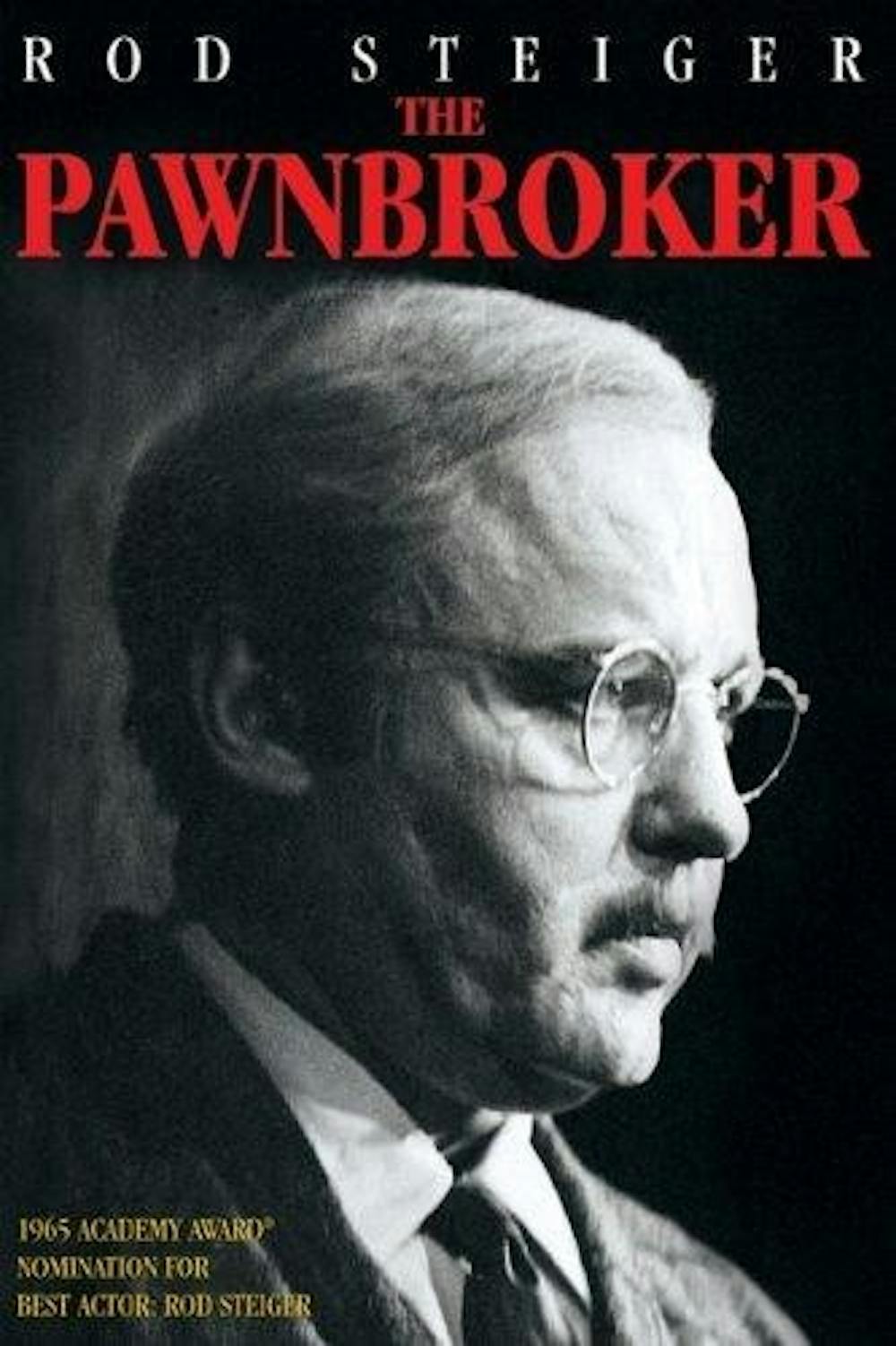“The Pawnbroker” is a dark, great film directed by Sidney Lumet. Notable for being one of the first American films to depict concentration camps in the Holocaust, “The Pawnbroker” casts an unflinching eye on a Holocaust survivor named Sol Nazerman.
Nazerman (Rod Steiger) owns a pawn shop in East Harlem, which is depicted as a parallel to the concentration camp in his memory. When Nazerman sees a fight going on as he walks to his car, rapid, jarring flashbacks occur, taking viewers back to his memories of violence in the concentration camp.
The film’s black and white aesthetic and overall style is harsh and gritty. It’s almost as if Lumet rigged the cameras to capture only the bad in each scene, leaving nothing but a shadow where good things should have been.
The lack of color mirrors the world as Nazerman sees it. He has been numbed by his experiences in the Holocaust, and he leads a nearly emotionless life. He is unmoved by the heartbreaking stories of his desperate customers and further unmoved by the death of family members. His lack of emotion is disturbed only by rare flares of anger, usually when someone else refuses to leave him alone.
As Nazerman tells his apprentice Ortiz in one of the film’s most famous scenes, the only thing he believes in is money. He views money as a much needed constant in a world full of chaos. This belief is reflected in the way the pawn shop is treated in the movie. It is Nazerman’s refuge against the world, a place where he is in control and where he feels closest to a peace, albeit a tense peace.
The external conflict of the story arrives when Nazerman learns that Rodriguez, the racketeer who is using his pawn shop as a front, runs a nearby brothel. In another series of flashbacks, we see Nazerman being forced by a Nazi guard to watch as his wife is violated.
Because of this experience, Nazerman goes to Rodriguez and tells him that he won’t take his money if it comes from a brothel, which Rodriquez concedes it does.
Reeling from his falling out with Rodriguez and overwhelmed by long-suppressed memories, Nazerman lashes out at Ortiz, telling him flatly that he means nothing to him. Ortiz, driven by greed and resentment, plans to rob the pawn shop with a few of his friends.
The film takes the audience on an interesting historical voyage, into a different era of cinema and a different period of time. It also presents a unique recollection of the Holocaust from the perspective of someone who has struggled to suppress that very memory.
“The Pawnbroker” is being shown at 6:30 p.m. Feb. 3 at the IU Cinema.
Holocaust drama has pawn shop setting

Get stories like this in your inbox
Subscribe





